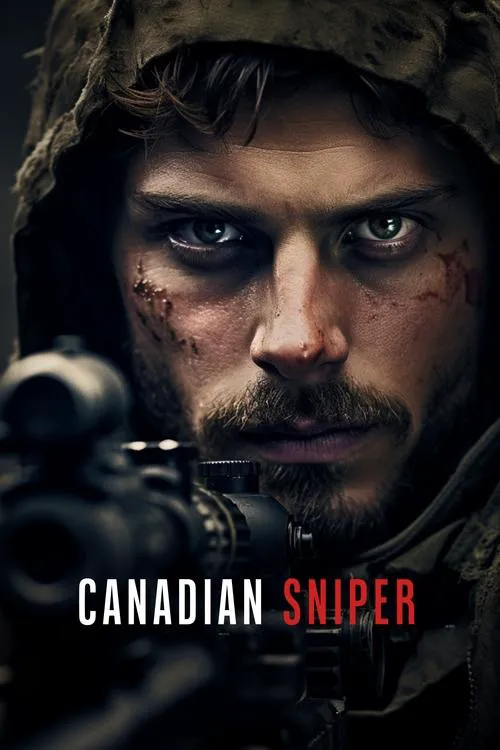Canadian, Sniper

Plot
"The Gray Area" follows the poignant story of former Canadian sniper Jack Harris, who finds himself at a crossroads in his life. Having served in Afghanistan, Jack's experiences have left him with deep emotional scars. The trauma of war and the responsibility of taking human lives have taken a toll on his psyche, making it increasingly difficult for him to reintegrate into civilian life. After being discharged from the military, Jack returns to his rural home in a remote Canadian town in an attempt to reconnect with his family and rebuild his life. However, the tranquility of his farm is short-lived. The isolation and the familiarity of the surroundings only seem to exacerbate the demons that haunt him. The silence and the stillness of the landscape amplify the internal turmoil, making it challenging for Jack to distinguish reality from his increasingly distorted perception of the world. As the days pass, Jack becomes withdrawn and isolated, struggling to cope with the memories of his past. He is plagued by nightmares and flashbacks, and the slightest noise can send him into a state of hyper-vigilance, making him a ticking time bomb ready to unleash his pent-up aggression. His relationships with his family and friends begin to fray, as they struggle to understand the changes that have taken place in him. Despite his best efforts to appear normal, Jack's fragile mental state leaves him questioning his own identity and sanity. The lines between reality and delusion begin to blur, and he finds himself wondering if the memories of his past are real or just a product of his imagination. His perception of time also becomes distorted, and he starts to relive moments from his past as if they were happening in the present. As Jack's grip on reality begins to slip, he becomes obsessed with a local game hunter who has been spotted in the woods. The hunter's presence seems to trigger a deep-seated fear of being hunted, forcing Jack to confront the traumas he experienced in Afghanistan. His fixation on the hunter is a coping mechanism, a way for him to channel his aggression and regain control over his life. However, as the situation escalates, Jack's behavior becomes increasingly erratic, and his loved ones begin to worry about his mental health. His wife, Sarah, tries to reach out to him, but Jack's defensiveness and anger push her away. His daughter, Emily, who has always looked up to her father, is shocked by the change in him and feels lost and alone. Meanwhile, a local doctor, who has been treating Jack's symptoms, discovers that his patient's condition is more complex than initially thought. Jack's doctor realizes that Jack is suffering from complex post-traumatic stress disorder (CPTSD), a condition that is unique to survivors of severe trauma. The doctor's diagnosis helps Jack's family understand the depth of his struggles and provides them with a glimmer of hope. In a tense and emotional climax, Jack's relationship with his family is put to the test. As he confronts his past and struggles to find redemption, he must also confront the loved ones he has hurt. The scene reaches its breaking point when Jack's wife, in a desperate bid to save her husband, convinces him to seek professional help. In a poignant and redemptive conclusion, Jack undergoes therapy and begins the arduous process of healing. The therapy helps him to confront his demons and find a way to reconnect with his family. Jack's relationship with his daughter, Emily, is particularly poignant, as they navigate the challenges of their new reality together. As the story comes to a close, Jack begins to rebuild his life, his relationships, and his sense of self. The film ends on a hopeful note, with Jack's family holding hands, symbolizing their newfound understanding and acceptance of each other. The final shot is of the Canadian landscape, a reminder of the beauty and the trauma that Jack has encountered. Through Jack's story, "The Gray Area" sheds light on the complexities of PTSD and the challenges faced by veterans and their families. The film provides a nuanced and empathetic portrayal of the mental health struggles that many veterans encounter and highlights the importance of support and understanding in the recovery process.
Reviews
Recommendations




